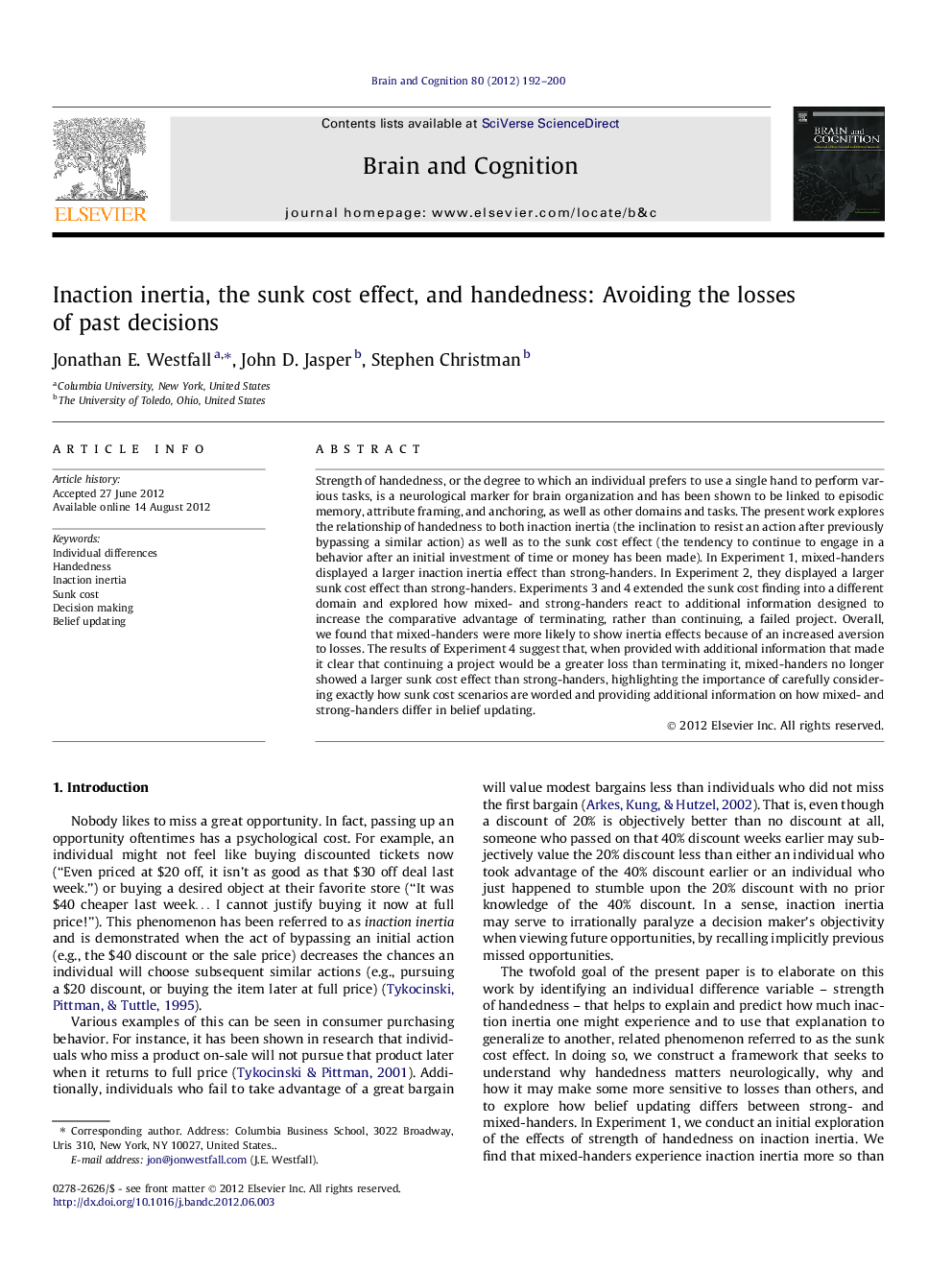| کد مقاله | کد نشریه | سال انتشار | مقاله انگلیسی | نسخه تمام متن |
|---|---|---|---|---|
| 924685 | 921256 | 2012 | 9 صفحه PDF | دانلود رایگان |

Strength of handedness, or the degree to which an individual prefers to use a single hand to perform various tasks, is a neurological marker for brain organization and has been shown to be linked to episodic memory, attribute framing, and anchoring, as well as other domains and tasks. The present work explores the relationship of handedness to both inaction inertia (the inclination to resist an action after previously bypassing a similar action) as well as to the sunk cost effect (the tendency to continue to engage in a behavior after an initial investment of time or money has been made). In Experiment 1, mixed-handers displayed a larger inaction inertia effect than strong-handers. In Experiment 2, they displayed a larger sunk cost effect than strong-handers. Experiments 3 and 4 extended the sunk cost finding into a different domain and explored how mixed- and strong-handers react to additional information designed to increase the comparative advantage of terminating, rather than continuing, a failed project. Overall, we found that mixed-handers were more likely to show inertia effects because of an increased aversion to losses. The results of Experiment 4 suggest that, when provided with additional information that made it clear that continuing a project would be a greater loss than terminating it, mixed-handers no longer showed a larger sunk cost effect than strong-handers, highlighting the importance of carefully considering exactly how sunk cost scenarios are worded and providing additional information on how mixed- and strong-handers differ in belief updating.
► Handedness moderates the sunk cost and inaction inertia biases in decision making.
► Mixed-handers are more likely to show inertia effects due to greater loss aversion.
► Additional information added to the question helps reduce this effect.
► We believe this information removes ambiguity regarding the loss.
Journal: Brain and Cognition - Volume 80, Issue 2, November 2012, Pages 192–200